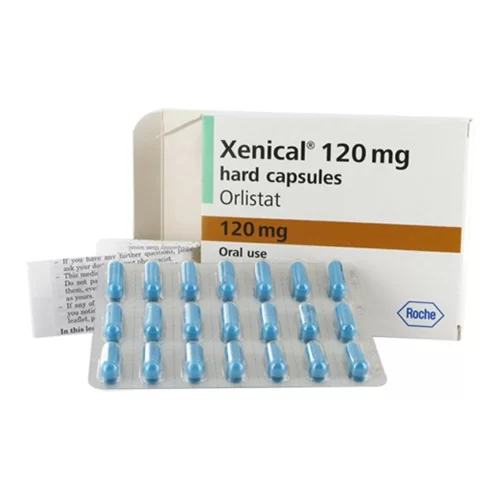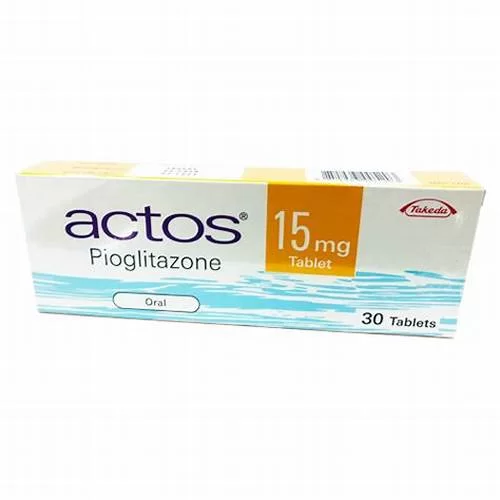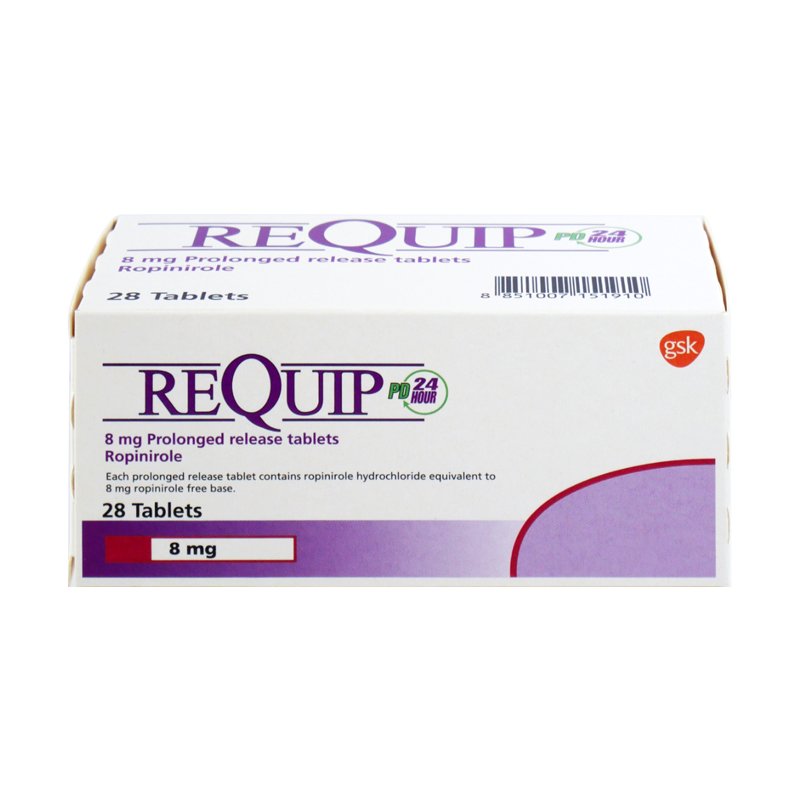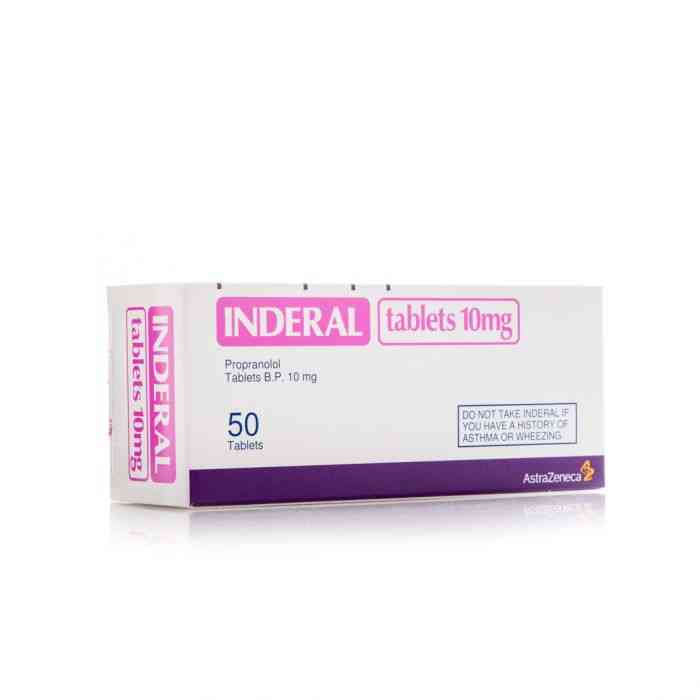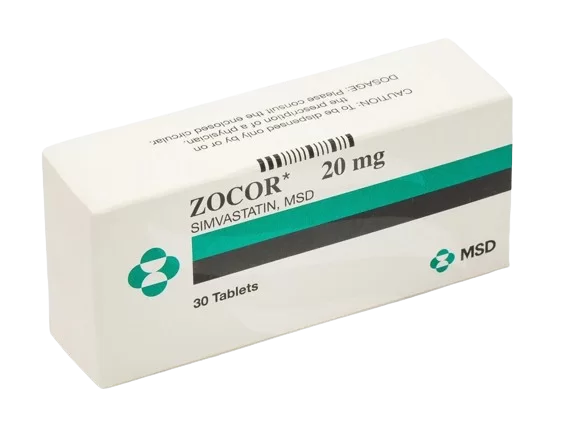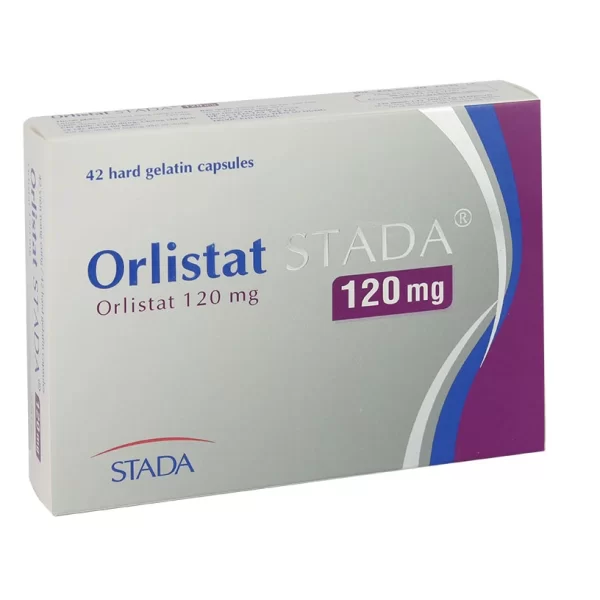
Orlistat
Orlistat - 120mg
| Product | Per Pill | Savings | Per Pack | Order |
|---|---|---|---|---|
| 10 caps | $6.39 | $63.89 | Buy Now | |
| 30 caps | $4.53 | $55.76 | $191.68 $135.92 | Buy Now |
| 60 caps | $4.07 | $139.40 | $383.35 $243.95 | Buy Now |
| 90 caps | $3.91 | $223.04 | $575.03 $351.99 | Buy Now |
| 120 caps | $3.83 | $306.68 | $766.70 $460.02 | Buy Now |
Orlistat - 60mg
| Product | Per Pill | Savings | Per Pack | Order |
|---|---|---|---|---|
| 30 caps | $1.97 | $59.04 | Buy Now | |
| 60 caps | $1.54 | $25.76 | $118.08 $92.32 | Buy Now |
| 90 caps | $1.40 | $51.53 | $177.12 $125.59 | Buy Now |
| 120 caps | $1.32 | $77.29 | $236.16 $158.87 | Buy Now |
| 180 caps | $1.25 | $128.82 | $354.24 $225.42 | Buy Now |
| 270 caps | $1.20 | $206.10 | $531.36 $325.26 | Buy Now |
| 360 caps | $1.18 | $283.39 | $708.48 $425.09 | Buy Now |
Overview of Orlistat
Brief Description of Orlistat
Orlistat is a medication used to aid in weight loss or to help reduce the risk of regaining weight already lost. The active ingredient, orlistat, works by inhibiting the absorption of fats from the diet, thus reducing caloric intake. It is primarily prescribed for individuals who are overweight or obese and are committed to a reduced-calorie diet and regular physical activity. Orlistat is available in both prescription strength (Xenical) and over-the-counter strength (Alli).
History of Development and Approval
Orlistat was developed by Roche and received its first approval from the U.S. Food and Drug Administration (FDA) in 1999 under the brand name Xenical. In 2007, a lower-dose version of orlistat was approved for over-the-counter sale under the brand name Alli. Extensive research and clinical trials were conducted to ensure its safety and efficacy in promoting weight loss and preventing weight regain. Over the years, orlistat has become a well-established option for weight management, supported by numerous studies demonstrating its benefits.
Key Benefits
Orlistat offers several key benefits for individuals aiming to lose weight:
- Weight Loss: Helps reduce body weight by decreasing the absorption of dietary fats
- Improved Metabolic Health: Contributes to improvements in blood pressure, cholesterol levels, and blood sugar control
- Prevention of Weight Regain: Aids in maintaining weight loss when used in conjunction with a reduced-calorie diet and physical activity
- Accessibility: Available both by prescription and over-the-counter, making it accessible to a broader population
Unique Properties
Orlistat's unique property is its mechanism of action, which targets the gastrointestinal tract to inhibit lipases, enzymes that break down fats in the diet. This inhibition prevents about 30% of dietary fat from being absorbed, leading to caloric deficit and weight loss. Unlike systemic weight-loss medications, orlistat works locally in the gut, reducing the risk of systemic side effects.
Comparison with Similar Medications
Compared to other weight-loss medications, orlistat offers unique advantages:
- Non-Systemic Action: Orlistat works locally in the gastrointestinal tract, minimizing systemic side effects
- Dual Availability: Available in both prescription (Xenical) and over-the-counter (Alli) forms
- Clinically Proven Efficacy: Studies have shown orlistat's effectiveness in promoting weight loss and improving metabolic parameters
Safety and Tolerability
Orlistat is generally well-tolerated. Common side effects include gastrointestinal issues such as oily spotting, flatulence, and frequent bowel movements. These effects are typically mild and occur primarily due to the unabsorbed fat in the stool. Serious side effects are rare but may include severe liver injury. Regular monitoring by a healthcare provider is recommended to ensure safety and efficacy.
Indications for Use
Diseases and Conditions Treated
Orlistat is prescribed for weight management in individuals who are overweight (BMI ≥25) or obese (BMI ≥30). It is also used to reduce the risk of weight regain after prior weight loss. By aiding in weight reduction, orlistat helps improve conditions related to obesity, such as hypertension, diabetes, and hyperlipidemia.
Symptoms Indicating Use
Individuals who struggle with weight management despite dietary and lifestyle changes may benefit from orlistat. Symptoms indicating the need for orlistat include difficulty losing weight, rapid weight regain, and obesity-related health issues. Early intervention with orlistat can support long-term weight management and improve overall health outcomes.
Dosage and Administration
Recommended Dosage for Adults
For adults, the recommended dose of orlistat is 120 mg taken three times a day with each main meal containing fat. The lower-dose over-the-counter version (Alli) is 60 mg taken three times a day with meals. It is essential to follow a reduced-calorie diet with approximately 30% of calories from fat for optimal results. Patients should be advised to distribute their daily intake of fat, carbohydrates, and protein evenly over three main meals.
Dosage for Children
Orlistat is not typically prescribed for children under 12 years old. For adolescents aged 12 to 18, the same adult dosage can be used, but only under the supervision of a healthcare provider. Safety and efficacy in this age group should be closely monitored.
Dosage for Elderly Patients
Elderly patients can use orlistat at the same dosage as younger adults. However, they should be monitored closely for gastrointestinal side effects and any potential nutrient deficiencies, particularly fat-soluble vitamins (A, D, E, K). Dose adjustments may be necessary based on overall health and concurrent medical conditions.
Optimal Timing of Administration
Orlistat should be taken with each main meal that contains fat. If a meal is missed or contains no fat, the dose of orlistat should be omitted. This timing helps ensure that orlistat effectively inhibits the absorption of dietary fat.
Frequency of Administration
The standard dosing frequency for orlistat is three times a day with each main meal. Consistent adherence to this dosing schedule is crucial for achieving the desired weight-loss outcomes.
Impact of Food on Efficacy
Orlistat's efficacy is directly linked to dietary fat intake. Patients must follow a reduced-calorie diet with controlled fat intake for the medication to be effective. Overconsumption of fat while taking orlistat can lead to increased gastrointestinal side effects and reduce the medication's effectiveness.
Pharmacological Action
Mechanism of Action
Orlistat works by inhibiting gastrointestinal lipases, enzymes that break down triglycerides in the intestine. When lipase activity is blocked, triglycerides from the diet are not hydrolyzed into absorbable free fatty acids and monoglycerides. Instead, the undigested triglycerides are excreted in the feces, leading to a caloric deficit and weight loss.
Molecular and Cellular Targets
Orlistat targets and binds to the active site of gastrointestinal lipases, rendering them inactive. This action occurs in the lumen of the stomach and small intestine, preventing the hydrolysis and subsequent absorption of dietary fats. The result is a reduction in the number of calories absorbed from fat.
Metabolic Pathways
Orlistat is minimally absorbed into the bloodstream, with its primary action occurring in the gastrointestinal tract. The small amount of orlistat that is absorbed is metabolized primarily within the gastrointestinal wall to inactive metabolites, which are then excreted in the urine. The majority of the drug is excreted unchanged in the feces.
Biochemical Changes
The inhibition of lipase activity by orlistat leads to a significant reduction in fat absorption, resulting in lower caloric intake. This mechanism helps create a caloric deficit necessary for weight loss. Additionally, orlistat has been shown to improve metabolic parameters such as cholesterol levels and blood pressure, contributing to overall health benefits.
Physiological Effects
Orlistat helps reduce body weight and improve metabolic health by decreasing fat absorption. Patients taking orlistat may experience improved lipid profiles, lower blood pressure, and better glycemic control. These physiological effects contribute to a reduced risk of obesity-related complications and enhance overall well-being.
Composition
Active Ingredient
The active ingredient in orlistat is orlistat, a lipase inhibitor. It is available in 120 mg capsules (Xenical) for prescription use and 60 mg capsules (Alli) for over-the-counter use. Orlistat specifically targets gastrointestinal lipases, preventing the breakdown and absorption of dietary fats.
Inactive Ingredients
Orlistat capsules contain inactive ingredients such as microcrystalline cellulose, sodium starch glycolate, and gelatin. These ingredients help in the formulation and stability of the capsules, ensuring consistent delivery and efficacy of the active ingredient.
Role of Each Component
Orlistat inhibits gastrointestinal lipases, reducing fat absorption. Inactive ingredients in the capsule formulation provide stability, aid in the manufacturing process, and ensure the medication is delivered effectively. These components work together to maintain the integrity and effectiveness of the medication throughout its shelf life.
Side Effects
Common Side Effects
Common side effects of orlistat include gastrointestinal issues such as oily spotting, flatulence, and frequent bowel movements. These effects result from the unabsorbed fat being excreted in the stool. They are usually mild and can be managed by adhering to a low-fat diet.
Rare Side Effects
Rare side effects may include severe liver injury, pancreatitis, and hypersensitivity reactions. These side effects are uncommon but can be serious. Patients should seek medical attention if they experience symptoms such as severe abdominal pain, jaundice, or difficulty breathing.
Serious Side Effects
Serious side effects requiring immediate medical attention include severe liver damage, acute kidney injury, and allergic reactions. Patients should be advised to discontinue orlistat and seek medical help if they develop symptoms like dark urine, severe abdominal pain, or swelling of the face and throat.
Frequency and Severity
Most side effects are mild and occur early in the treatment. Serious side effects are rare but warrant close monitoring by a healthcare provider. Regular follow-up appointments can help manage and mitigate these risks, ensuring safe and effective use of orlistat.
Prevention of Side Effects
General Precautions
To minimize side effects, patients should follow a low-fat diet and adhere to the prescribed dosage. Taking orlistat with meals that contain fat helps reduce gastrointestinal side effects. Patients should be advised to take a multivitamin supplement to ensure adequate intake of fat-soluble vitamins (A, D, E, K).
Recommendations for Better Tolerability
Using orlistat as directed and maintaining a balanced diet with controlled fat intake can improve tolerability. Patients should be educated on the importance of adhering to dietary recommendations and monitoring their response to the medication. Regular check-ups with a healthcare provider can help address any concerns and optimize treatment.
Contraindications
Conditions and Diseases
Orlistat is contraindicated in patients with chronic malabsorption syndrome, cholestasis, and known hypersensitivity to the drug or its components. It should not be used during pregnancy, as weight loss offers no potential benefit to a pregnant woman and may harm the fetus. Caution is advised in patients with a history of kidney stones or liver disease.
Explanation of Contraindications
Orlistat may exacerbate conditions like malabsorption syndrome and cholestasis due to its mechanism of action. Hypersensitivity reactions can cause severe allergic responses, making it crucial to assess a patient's medical history and allergies before prescribing orlistat.
Warnings and Precautions
Potential Risks
Patients should be monitored for signs of liver injury and kidney stones, especially those with pre-existing conditions. Orlistat can affect the absorption of fat-soluble vitamins, necessitating the use of supplements. Regular blood tests may be required to monitor liver function and nutrient levels.
Safety Measures
Regular monitoring by a healthcare provider, starting with a low dose, and adjusting as needed can help mitigate risks. Patients should be instructed to report any symptoms of liver injury, such as jaundice or dark urine, and any severe gastrointestinal symptoms. Regular vitamin supplementation can prevent deficiencies.
Missed Dose
Immediate Actions
If a dose is missed, take it as soon as remembered unless it is almost time for the next dose. Do not double the dose to catch up. If a meal is skipped or contains no fat, the dose of orlistat should be omitted.
Preventive Strategies
Using reminders and keeping a consistent schedule can help prevent missed doses. Patients can set alarms, use medication reminder apps, or keep a medication diary to track their doses.
Drug Interactions
Interacting Medications
Orlistat may interact with anticoagulants (e.g., warfarin), antiretroviral drugs for HIV, and antiepileptic medications. These interactions can either reduce the efficacy of orlistat or increase the risk of adverse effects. It is essential to inform the healthcare provider of all medications being taken to avoid potential interactions.
Effects of Interactions
These interactions can affect the metabolism and efficacy of orlistat or the concomitant medications. For instance, orlistat can reduce the absorption of fat-soluble vitamins, which can affect the efficacy of medications dependent on these vitamins. Monitoring blood levels and adjusting dosages may be necessary to manage these interactions.
Avoiding Interactions
Inform the healthcare provider of all medications being taken to avoid potential interactions. Patients should not start, stop, or change the dosage of any medicines without their healthcare provider’s approval. Regular reviews of medication regimens can help identify and manage potential interactions.
Overdose
Symptoms of Overdose
Symptoms of overdose may include severe gastrointestinal distress, increased frequency of bowel movements, and fat in the stool. Seek emergency medical help if an overdose is suspected. Supportive measures and symptomatic treatment are recommended.
Immediate Actions
Seek emergency medical help if an overdose is suspected. Supportive measures and symptomatic treatment are recommended. Activated charcoal may be administered if the overdose is recent, and other treatments may include intravenous fluids and medications to manage symptoms.
Pharmacokinetics
Absorption
Orlistat is minimally absorbed into the systemic circulation, with its primary action occurring in the gastrointestinal tract. The low absorption rate minimizes the risk of systemic side effects.
Distribution
Orlistat remains mostly in the gastrointestinal tract, where it exerts its therapeutic effect. The small amount that is absorbed is distributed to tissues with high lipid content.
Metabolism
The small amount of absorbed orlistat is metabolized primarily in the gastrointestinal wall to inactive metabolites. These metabolites are then excreted in the urine. The majority of the drug is excreted unchanged in the feces.
Elimination
Orlistat is excreted primarily through the feces, with approximately 97% of the absorbed dose being excreted unchanged. The half-life of the absorbed orlistat is about 1 to 2 hours. This elimination pathway helps minimize systemic exposure and related side effects.
Dosage Forms
Available Forms and Dosages
Orlistat is available in 120 mg capsules (Xenical) for prescription use and 60 mg capsules (Alli) for over-the-counter use. These different dosages provide options for patients based on their needs and healthcare provider recommendations.
Benefits of Different Forms
The availability of both prescription and over-the-counter forms allows for flexible and accessible treatment options. Prescription-strength Xenical is suitable for more significant weight loss needs, while over-the-counter Alli offers a convenient option for individuals seeking additional support for weight management.
Pregnancy and Breastfeeding
Safety During Pregnancy
Orlistat should not be used during pregnancy, as weight loss offers no potential benefit to a pregnant woman and may harm the fetus. Pregnant women should focus on a healthy diet and appropriate weight gain based on medical recommendations.
Safety During Breastfeeding
It is not known whether orlistat is excreted in human milk. Due to the potential for adverse effects in nursing infants, a decision should be made whether to discontinue breastfeeding or discontinue the drug, considering the importance of the drug to the mother. Breastfeeding mothers should consult their healthcare provider to weigh the potential risks and benefits.
Storage Conditions
General Recommendations
Store orlistat at room temperature between 20°C to 25°C (68°F to 77°F). Keep the medication in its original container, tightly closed, and out of reach of children and pets.
Specific Storage Instructions
Orlistat capsules should be stored in a cool, dry place away from direct sunlight and moisture. Do not store in the bathroom or other humid environments, as moisture can affect the stability of the capsules.
Expiry and Stability
Check the expiration date on the package and do not use orlistat past the expiration date. Proper storage ensures the medication remains effective and safe to use. Dispose of expired or unused medication according to local regulations to prevent accidental exposure or misuse.
Clinical Trials and Efficacy
Overview of Clinical Studies
Orlistat has undergone extensive clinical trials to evaluate its safety and efficacy in promoting weight loss and preventing weight regain. These studies included randomized, double-blind, placebo-controlled trials involving thousands of participants worldwide.
Results and Findings
Clinical trials have shown that orlistat significantly promotes weight loss and helps maintain weight loss over time. Participants treated with orlistat demonstrated greater reductions in body weight and improvements in metabolic parameters compared to those receiving a placebo. The medication's effects on fat absorption were confirmed through laboratory tests.
Comparative Studies
Studies comparing orlistat with other weight-loss medications have shown that orlistat provides unique benefits due to its local action in the gastrointestinal tract. This action reduces systemic side effects and offers a safe and effective option for long-term weight management. Comparative studies highlighted orlistat's superior safety profile and tolerability.
Conclusion
Summary of Key Points
Orlistat is an effective weight-loss medication that works by inhibiting the absorption of dietary fats. Its unique mechanism of action and availability in both prescription and over-the-counter forms make it a valuable option for individuals seeking to manage their weight. The medication is generally well-tolerated, with a well-documented safety profile.
Recommendations
For optimal results, patients should follow their healthcare provider's instructions regarding dosage and administration. Regular monitoring and follow-up appointments are essential to ensure the medication's effectiveness and manage any side effects. Patients should adhere to a reduced-calorie diet and maintain regular physical activity for the best outcomes.
Final Thoughts
Orlistat significantly aids in weight loss and helps prevent weight regain, improving overall health and reducing the risk of obesity-related complications. With its proven efficacy and safety, orlistat remains a trusted choice for patients and healthcare providers in the management of overweight and obesity.
